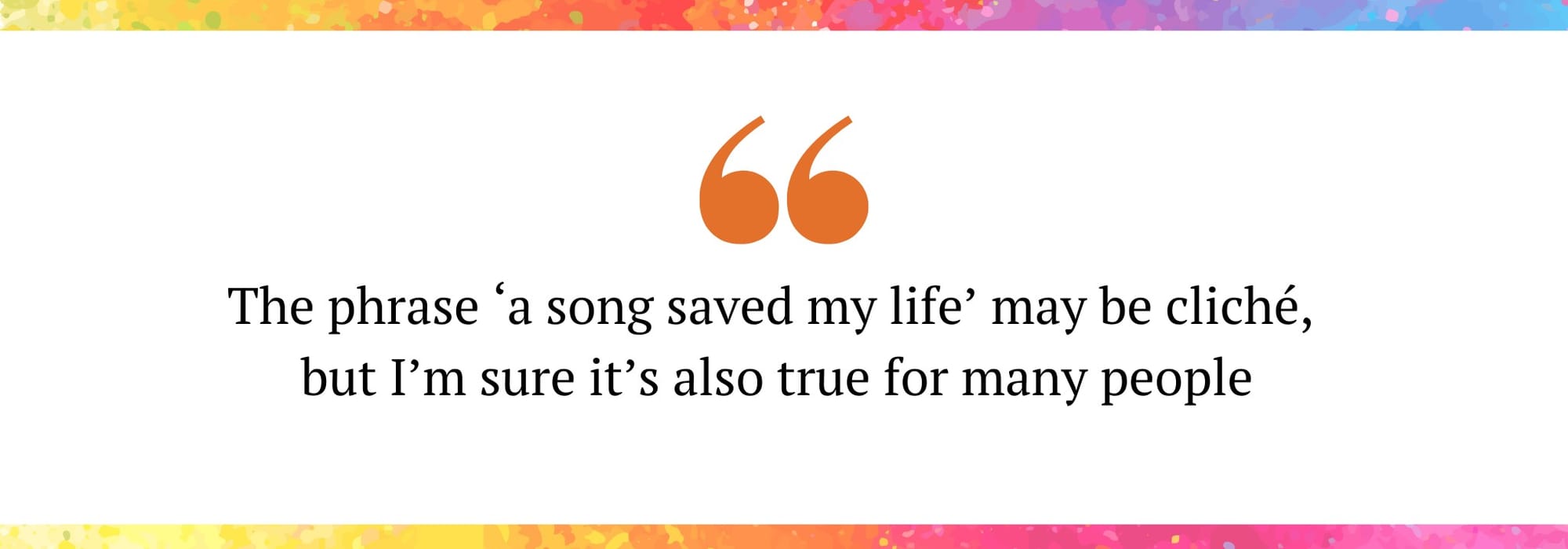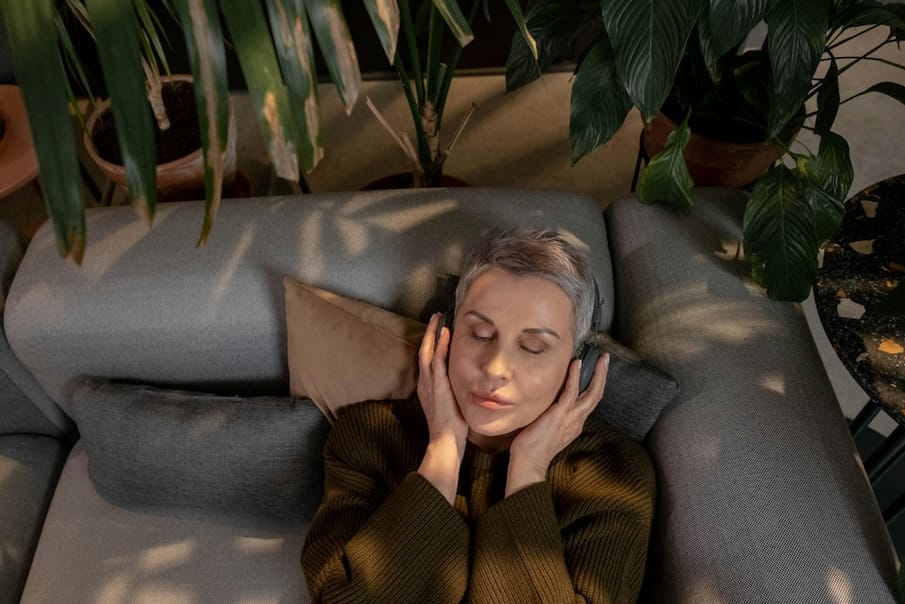Discover why music takes us back, and how to use it to support wellbeing
Think of your all-time favourite song, the one that instantly puts a smile on your face from the first note, gets you singing along, and holds a special meaning for you. Now, when did you first hear that song? According to a study published in the journal Music and Science, it’s likely that your answer to that question is when you were a teenager.
Looking at the presence of the ‘musical reminiscence bump’ in a group of 470 adults between the ages of 18 and 82 years old, study participants were shown the titles and artists of 111 pop songs that had been in the charts between 1950 and 2015, and were asked to provide ratings. What the researchers found was that across the participants, music that was in the charts during their adolescence was rated as more familiar, and was also associated with more autobiographical memories – with the ‘musical reminisce bump’ peaking at the age of 14.
That said, for some participants, the music with the strongest reaction didn’t always line up with the music topping the charts when they were young – but was still the music they listened to at that age, highlighting how the personal relationship we have with certain songs comes into play. Additionally, we may also have a reaction to music we don’t particularly like, but which we heard during those years, and so may be associated with specific events such as our school years, parties, and gatherings.
Neural nostalgia – memories and feelings prompted by nostalgia, often with the assistance of music – can be a healing and supportive experience, and it’s a tool many are able to tap into. So, what is it about music that makes it so powerful, and can we be deliberate about using it to support our wellbeing? Jonathan Falcone is a psychotherapist with an interest in music, and he knows first-hand how impactful it can be.
“My relationship with music is a deeply enmeshed one; I consider music to be part of me,” he says. “As a child, my father was always playing guitar, and my childhood household usually had music on in the background. Music was the greatest gift my household gave me. All I wanted to do as a teenager was to be in a band, so I was lucky to have had nearly a decade as a musician and songwriter on independent and major record labels globally, before retraining to become a psychotherapist. For me, music is a constant companion that unlocks emotional reflection, either when writing music or listening to it. It’s also a powerful grounding and regulating force for me.”

As Jonathan sees it, music supports him in a number of ways. He says it helps him self-regulate, comparing it to a return to lullabies. Other times, a specific song might articulate a feeling that he might find himself repressing in some way, and he also points to listening to vigorous music while exercising, which helps to release feel-good endorphins, as well as process emotions.
“Through a transactional analysis lens, I see music as often occupying the function of some form of free child ego state, or permissive, nurturing parent ego state – which gives us the permission to helpfully internalise and process feelings we may be refusing to acknowledge as part of us,” Jonathan says, reflecting on why he believes music can have such a powerful effect. “I worked with someone who was a great fan of the band Oasis. When we explored this in greater depth, what came forward was the client’s desire for friendship and unity in a world that they felt was inherently hostile. It helped the client to open up about all these feelings and beliefs they were holding.
“Similarly, I love anecdotal stories about people who listen to death metal being incredibly calm in person, because they have a space where they can be immersed in their ‘not-calm’ feelings, and then leave them there. In that way, it’s incredibly powerful and helpful.”
That personal connection to music, as found in the study that looked at the song charts, is key. And Jonathan points to another study, published in the journal PLOS ONE, which found that listening to sad music when you’re feeling down doesn’t make you feel worse, and instead could actually improve your mood due to the way it can provoke other feelings – namely nostalgia.
“I would encourage anyone who wants to use music to support their mental health to go for it, and explore what it is that music does for them,” says Jonathan. “It’s more tools in the toolbox for healthy emotional reflection, regulation, and expression. I like the idea of music as a companion. Can music articulate something for you that feels satisfying in some way, a sense of calm or excitement or motivation, or time away from feelings of isolation? The phrase ‘a song saved my life/got me through hard times’ may be cliché, but I’m sure it’s also true for many people.

“Can it be part of your social life in a way that helps you to develop a healthy support network? If you play an instrument, can you give yourself permission to play it just for the purpose of playing, to be curious and see where you end up? I believe that the way that people can use music to support their wellbeing is individual and needs exploration. There is, of course, the chance to use music therapeutically as well, by working with a music therapist, or just bringing music into therapy, if the therapist and client agree to do so.”
It’s an easily accessible way of nurturing your wellbeing, and something you can put to the test right away. You could recreate the music chart study for yourself, listening through some top hits and noting down the thoughts, feelings, and memories that come up as you go. Or you could make your ultimate feel-good playlist, or collaborate with a friend to create something that reminds you of all the special times you’ve spent together. Whatever it may be, the effect of music can be truly profound. All it takes to start is pressing play.


Comments